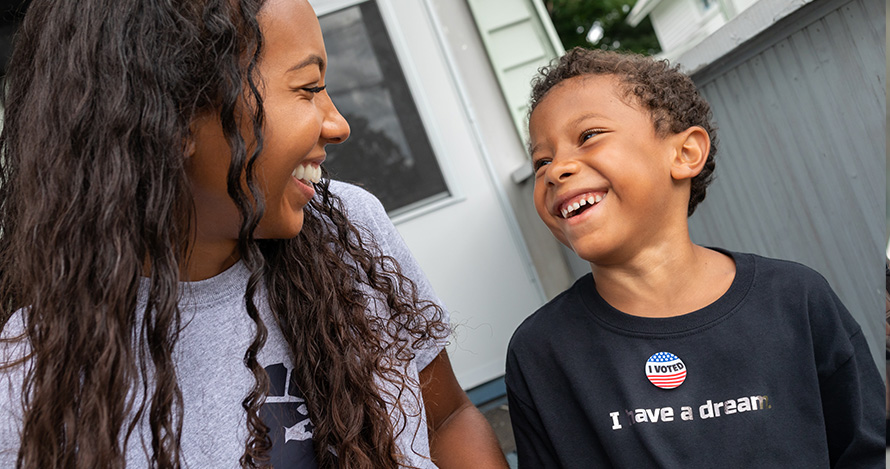Children orbit their school universe managing friendship drama and travel soccer while deciphering Shakespeare and geometry. Amidst the daily drumbeat, parents can guide children to care about civic affairs, whether turmoil in Haiti, upcoming presidential election or Miami housing affordability. As they learn about local and global issues, encourage them to follow their interests and make a difference in their schools, clubs and faith communities.
Digest the News: While rehashing the day's agenda over dinner, try seasoning conversation with a current events quiz on the Florida law against homeless encampments or the prisoner swap and Russia's lack of press freedom. The Harvard Graduate School of Education's "Helping Teens Process Current Events: a Toolkit for Parents" recommends parents proactively discuss news with middle and high schoolers while also creating healthy boundaries from the 24-7 news stream. "Find intentional moments to discuss current events with your teen and take the time to understand your teen's questions and concerns so that difficult topics are given due attention," it says.
Model Empathy: For situations outside of lived experience, parents can research to educate themselves. "It's inevitable that young people will come across news and other content that they may need support to process and understand. It's also critical for young people to appreciate how understanding current events can help them develop empathy, particularly for people who are different from them... You are modeling for your teen a vital form of caring for others," explains the article.
Ask your child's opinion and what stands out with regards to fairness and justice instead of just hammering your stance. This can spark conversation about interests and help youth explore their identity. “To help teens know their thoughts and opinions matter in conversations with authority figures, let them know you are eager to learn from and with them and that their thoughts, opinions and questions are an important part of your learning process.”
Get Newsy: Common Sense Media recommends "Best News Sources for Kids" online. Or go old school and subscribe to wholesome magazines such as Time for Kids or the Week Junior. In "Explaining News to Our Kids" it advises parents to monitor how children process difficult events while sheltering little ones under 7 from any news or images that could scare them. "Not all kids need the details, but they will be looking for reassurance. It will be easier to have a position, share your family's values and discuss things with a potentially overwhelmed child once you have taken the time to gather accurate, up to date information and assess your child's needs."
For children ages 8-12 it might be helpful to give context news wise on basics like prejudice, civil and religious strife and historical context. Filter their news and help them identify reliable outlets with accurate facts. Discuss what they already know and how to express their voices responsibly.
Be the Change: Look for ways to take action about topics of concern. "Showing kids how they can support a cause is a positive way to ease their fears while getting involved. Families can attend meetings or protests; kids can help assemble care packages or raise money to donate to a rescue or humanitarian effort. Check out websites that help kids do good," writes Common Sense Media.
North Carolina State Extension's article, "Encouraging Youth Civic Engagement," advises to look for youth leadership organizations to share their voice and make decisions along the yellow brick road to activism. “By talking about current events we are able to help the youth become used to being in the know about what's going on in the world around them. This may also spark a conversation about something they are passionate about and something they would like to change...Civic engagement is about helping to make a change for the better in your community.”
So discuss the big picture and guide your child to organize that holiday clothing drive for children at a shelter, volunteer at a race benefitting Ukraine or join a beach cleanup on Key Biscayne, becoming a force for good in one's own neighborhood.

